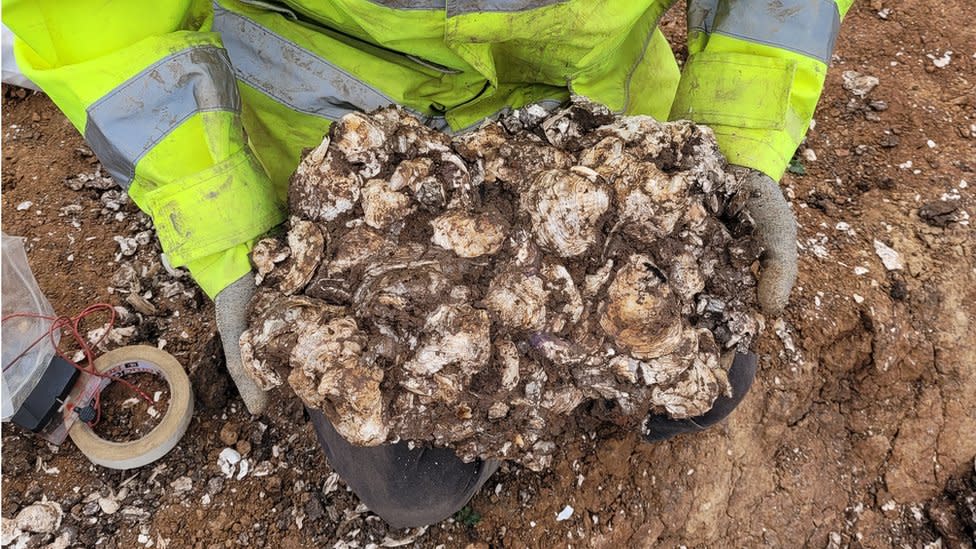Roman oyster 'processing site' discovered on banks of Humber

A suspected Roman oyster processing site has been unearthed on the banks of the Humber Estuary.
The Environment Agency said the discovery was made during flood defence work near Weeton in East Yorkshire.
A team from York Archaeology chanced on the find close to what they think was an early Roman settlement.
Oysters were prized by the Romans with some reports suggesting they played a key part in Julius Caesar's decision to invade Britain.
According to the agency, large quantities of "misshapen oyster shells" were found, supporting the theory that they grew naturally on a shell reef rather than being grown on ropes, which was a common practice at the time.
Jennifer Morrison, the agency's senior archaeologist, said: "It was truly amazing to find the evidence of this early oyster processing site during our dig.
"We know that, at this time, oysters would have been plentiful and that they were a staple part of the diet.
"We also know that British oysters were prized by the Romans, and it is quite possible that some of these oysters found their way back to Italy."
For the last three years, the agency has been realigning sea defences to provide 250 hectares of new wet grassland, saltmarshes and mudflats to replace land being lost to human activity on the north bank of the estuary.
Today, oysters - natural filters, which keep the water clean as they absorb carbon and release oxygen - are being reintroduced to the Humber once again as part of the Wilder Humber partnership, comprising Yorkshire Wildlife Trust, Lincolnshire Wildlife Trust and energy company Orsted.
The oyster reefs will help protect the coastline from erosion by stabilising the seabed and absorbing wave energy, the agency said.
People can learn more about Roman and medieval finds at a new exhibition, which runs each Wednesday and Saturday until 22 June at Hedon Museum.
Follow BBC East Yorkshire and Lincolnshire on Facebook, X (formerly Twitter), and Instagram. Send your story ideas to eastyorkslincs.news@bbc.co.uk


